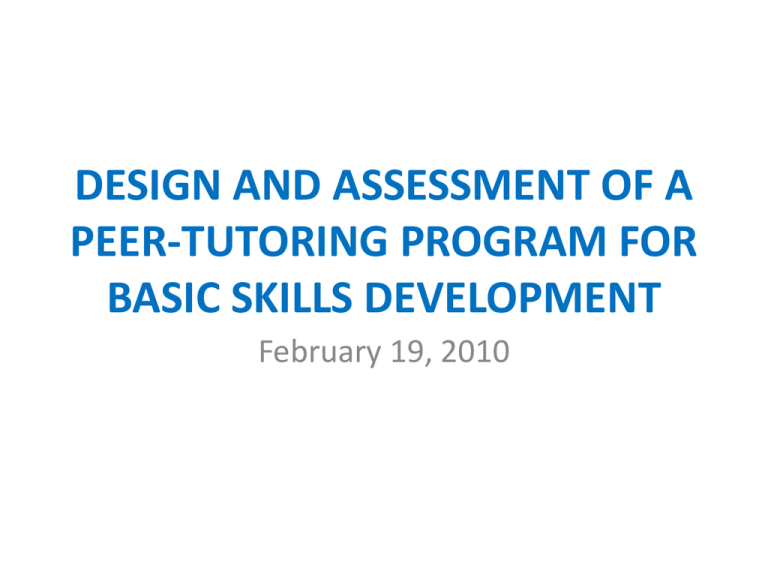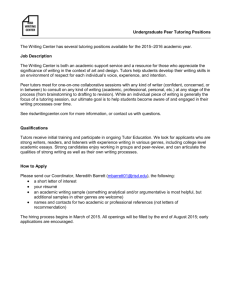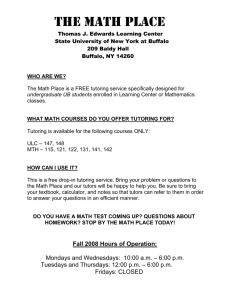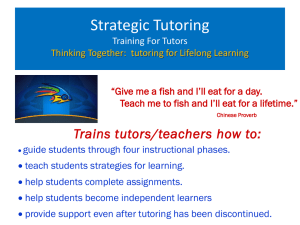DESIGN AND ASSESSMENT OF A PEER-TUTORING PROGRAM FOR BASIC SKILLS DEVELOPMENT
advertisement

DESIGN AND ASSESSMENT OF A PEER-TUTORING PROGRAM FOR BASIC SKILLS DEVELOPMENT February 19, 2010 Here’s a sample of the problem: % of students who erroneously identified concepts essential to critical thinking in Geography • Methodology of spatial analysis • Relationship of Geography to other sciences • Composition of Earth’s crust • Location of the International Date Line • Longitude of the Prime Meridian 52% 50% 60% 59% 55% data from early quiz results, fall 2009 candidate tutors Eval. of interested students Initial eval. of essential concepts assessment methods Recruit tutoring participant Compilation of initial results Current geography students repeated problematic concepts Quizzes/ exercises tutoring methods problematic concepts student responses concept assessment Interested students Eval. of interested students evaluation data Instructor Tutoring participants enrolled participant Final eval. of essential concepts untutored responses Untutored student group Midterm /final exams assessment methods PROCESS DIAGRAM: PEER TUTORING - GEOGRAPHY tutoring activiity concept questions Tutored student outcomes evaluation data Compilation of final results Untutored Student outcomes findings Essential concepts criteria Successful geography students Potential tutoring group incentives Tutored responses Instructor Concepts assessment formatting criteria Geography Tutors (PATH) concept assessment Learning Connection (PATH) Hired tutors findings Interview and sel. of candidates Recruit peer tutors for introductory physical geography from population of recently successful students Identify essential concepts with high frequencies of misunderstanding early in the course Assess understanding of basic concepts before and after tutoring, for each student and for the two populations: tutored and untutored student groups Evaluate early assessment results to identify basic concepts not easily grasped in early stages of the course Begin tutoring sessions only after 4-5 weeks of assessment by the instructor and by the students themselves Encourage participation through stories offered by the tutors, and through extra credit points Students less inhibited to ask questions and admit deficiencies in study skills Adds regularly scheduled periods to focus on the textbook and/or other learning resources Peer tutors have recent empathy for students’ particular problems interfacing with the instructor Encourages active learning ?? Problems encountered • Recruitment & motivation – Voluntary process some mismatch between those in need and participants • Communication among instructors and tutors – Regular meetings for feedback & strategies would be helpful: scheduling issues – Different tactics among instructors and tutors toward improving students’ study skills • PATH Center restricted hours & student schedules • Persistence of all involved ??




